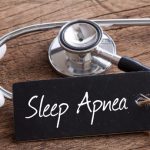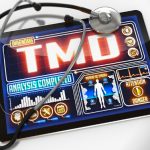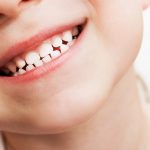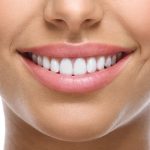Sleep Apnea and Dentistry
Medically Reviewed by: Ivan F. Stein, DDS
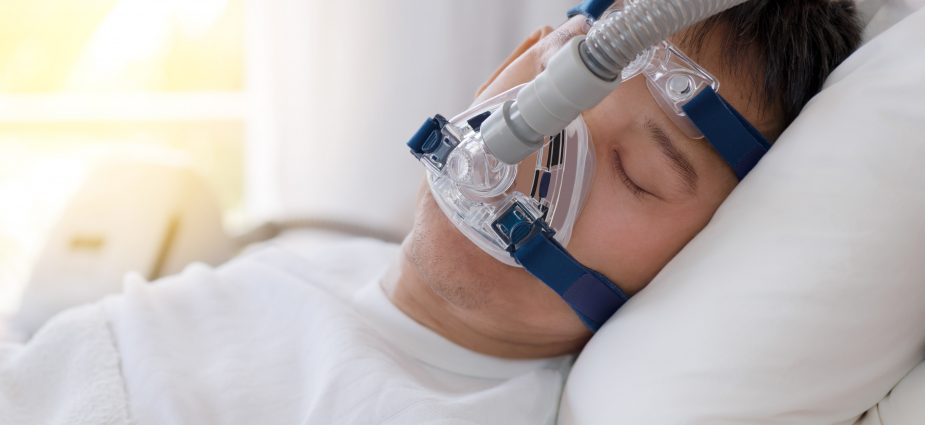
Sleep apnea, the cessation of breathing during sleep, is a common problem that affects both children and adults. The National Institutes of Health estimate that over 12 million Americans have sleep apnea and most often are undetected or misdiagnosed! In fact, conservative estimates suggest that only 16% of sleep apnea sufferers receive treatment.
Untreated sleep apnea affects your well-being and may contribute to high blood pressure, cardiovascular disease, diabetes, erectile dysfunction and memory concentration impairment. Since it reduces the quality of sleep and contributes to daytime sleepiness, driving may become more dangerous and has become a leading cause of car accidents. Certain types of sleep apnea can be treated by your dentist or oral surgeon with the guide of a sleep specialist.
Types of Sleep Apnea
Sleep apnea occurs in three forms:
- Obstructive sleep apnea: An airway blockage caused by a genetic abnormality such as excessive tissue in the back of the tongue, throat or nose.
- Central sleep apnea: Results when the brain fails to send proper signals to muscles responsible for breathing.
- Mixed sleep apnea (also called complex sleep apnea): Diagnosed when both central sleep apnea and obstructive sleep apnea are present.
Your dentist may be able to correct obstructive sleep apnea by creating and fitting you with a dental appliance that is worn during sleep. If the cause is the tongue resting on the airway, a tongue-retaining device can reverse the problem. If it is caused by the incorrect positioning of the jaw, it may be treated with a device inserted into the mouth to adjust the jaw’s positioning. Dental devices that are worn inside the mouth in order to treat sleep apnea look like athletic mouth guards. These devices are removable and create a much more comfortable sleep.
If caused by excess tissue growth on the tongue or in the back of the throat, the overgrowth may be surgically removed to resolve the blockage. Oral and maxillofacial surgeons and ear, nose and throat (ENT) doctors are experienced in performing such operations. However, dental professionals trained in laser dentistry may also perform the procedure.
Signs and Symptoms
Although you may be aware that your sleep is disturbed it is more likely your symptoms will be noticed first by other family members. The two most commonly identified sleep apnea symptoms are:
- Gasping for air or choking during sleep
- Loud snoring
The inability to breathe properly often results in sudden awakenings throughout the night that interrupt one’s sleep and prevent them from feeling refreshed throughout the day. As a result, one might find themselves struggling to stay awake during the day or feeling irritable and depressed. Other possible signs include:
- Painful and inexplicable headaches in the morning.
- Waking up with a sore throat or dry mouth.
- Memory problems and difficulty concentrating.
- Urinating frequently throughout the night.
It is important to note that the presence of one or more of these signs and symptoms does not confirm that you have sleep apnea. You may be a heavy snorer or urinate frequently throughout the night for other reasons. To confirm a diagnosis, consult with your doctor to undergo professional evaluation.
Diagnosis and Treatment of Sleep Apnea
Sleep apnea is difficult to diagnose and treat partly because the medical community is still learning about sleep. A Pulmonologist, Neurologist, or an ENT will perform an overnight sleep test either in a hospital setting or a take home device to confirm the diagnosis. We suggest involving dental specialists and those in various areas of medicine to develop in an integrated approach for the treatment of sleep apnea.
Specialists Involved in Diagnosis and Treatment
Specialists who diagnose and treat sleep apnea include:
- Your primary care physician. He or She may refer you to a sleep specialist for a sleep test.
- An ear, nose and throat doctor (ENT). He or She may recommend surgery to clear blockages caused by a genetic abnormality in the nose or throat. The uvulopalatopharyngoplasty (UPPP) procedure eliminates tissue from the back portion of the mouth near the top of the throat. The adenoids and tonsils may be removed as well. Should your airflow blockage be life-threatening, the ENT may find it necessary to build an opening in the windpipe through a procedure called tracheotomy. Additionally, an operation on your nose may be necessary to improve a deviated septum or to remove polyps that are blocking your airflow.
- A pulmonologist (a doctor who deals with diseases of the respiratory system) may recommend a sleep evaluation based on an analysis of your breathing muscle capacity. Pulmonologists may also recommend the use of oxygen, should blood-oxygen levels fall to dangerous levels during sleep.
- A neurologist (a doctor who deals with nervous system disorders) will evaluate brain functionality and may recommend a medication such as acetazolamide to improve the brain’s ability to trigger the breathing muscles.
- A cardiologist (a doctor who deals with diseases and disorders of the heart) may recommend a sleep test as well.
- A sleep specialist may perform a test that measures blood levels (among other anatomical factors) during sleep. Sleep specialists may recommend the use of a continuous positive airway pressure (CPAP) machine. The machine delivers a continuous flow of oxygen through a mask that you wear over your nose during sleep. An alternative is a bi-level positive airway pressure (bi-level PAP) machine, which increases the oxygen level upon inhalation and decreases it upon exhalation. Lastly, an adaptive servo-ventilation (ASV) machine measures your level of breathing and records the data so that oxygen delivery can be matched to your specific needs.
- Certain dentists and oral surgeons are skilled in evaluating the tongue for its ability to move freely and its tendency to block airflow during sleep. The tongue can become restricted as the mouth and gum tissue shrinks with age. In this case, a laser may be used to eliminate the tissue causing the tongue restriction. The tongue tissue may be surgically reduced, but because this surgery involves general anesthesia, stitches in the tongue, discomfort, and a long recovery period, many prefer the laser approach.
Another dental approach is to position the jaw so that airflow is not blocked. If the upper and lower jaws are responsible for sleep apnea, then an oral surgeon and an orthodontist may work together to reposition them. Another alternative is a mouthpiece known as a mandibular advancement device (ex: OravanOSA an Anti-Snoring Mouthpiece) that can be custom fabricated by an oral surgeon or dentist and worn while sleeping to hold the lower jaw in an appropriate position allowing air to pass unobstructed thus reducing and or eliminating the symptoms of sleep apnea. Most patients are able to adapt to the device within 3- 5 days.
Self Help
Additionally, you can cope with or reduce the occurrence of sleep apnea by doing the following:
- Maintain proper weight: A large number of sufferers are obese. Excess weight in your abdomen or neck can significantly hamper the effectiveness of the breathing muscles and compress your airway. One of the first things your dentist or doctor will recommend is weight loss. In extreme cases, weight loss surgery may be considered as a treatment option.
- Eliminate alcohol, tobacco, and sedatives: Avoid anything that can depress breathing. Severely depressed breathing reflexes increase your chances of not recovering from breathing cessation in the night. The combination of sleep apnea with alcohol, tobacco, and sedatives could be lethal.
- Sleep on your side with a comfortable pillow: Sleeping on your side as opposed to your back may help keep your throat open and limit the effects of sleep apnea.
- Know your limits!: Should you feel sleepy at various times of the day, refrain from driving or operating machinery.
Treatment Costs
While the high cost of procedures may discourage people from seeking treatment, the cost of not treating sleep apnea is – costly The University of Manitoba in Winnipeg and a team led by Dr. Meir Kryger conducted a study of 181 people with the most severe form of sleep apnea. The results of the study (published in 1999), demonstrated that the average yearly cost for their physician visits dropped from approximately $500 one year prior to diagnosis to about $390 two years after diagnosis and treatment.
Because insurance plan administrators do not have consistent standards for reimbursement, it is difficult to predict out-of-pocket costs for sleep apnea diagnosis and treatment. For example, many insurance companies do not pay for the dental laser approach for reducing tissue surrounding the tongue, but they may pay for the surgical approach, and. most are now paying for the dental device.
Some state Medicaid programs vary in their reimbursement policies. For example, the state of New York Medicaid pays for sleep disorder treatment but not for sleep disorder diagnosis.
It is wise to contact your insurance plan administrator about sleep apnea diagnosis and treatment costs. Expect to pay some out-of-pocket costs. Keep in mind, however, that if you treat your sleep apnea now, you may avoid potentially higher medical costs for more serious medical problems later.
Factors that may affect treatment costs include:
- The number of procedures or appliances used to avoid airflow blockage.
- The technology used in the procedure.
- The training of the specialist, dentist or oral surgeon.
- The number of doctors or dentists involved.
- The locale of the doctor(s).
- The type of medical or dental insurance you have.
[updated May 13, 2019]
About the Reviewer
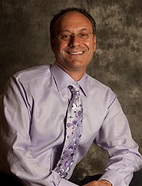 Ivan F. Stein, DDS, is a recognized innovator in neuromuscular and cosmetic dentistry. He has dedicated two decades of his career to researching and treating functional disorders of the jaw and mouth – including temporomandibular joint disorder (TMD) and excessive snoring caused by obstructive sleep apnea (OSA) – as well as full mouth reconstruction.
Ivan F. Stein, DDS, is a recognized innovator in neuromuscular and cosmetic dentistry. He has dedicated two decades of his career to researching and treating functional disorders of the jaw and mouth – including temporomandibular joint disorder (TMD) and excessive snoring caused by obstructive sleep apnea (OSA) – as well as full mouth reconstruction.
Dr. Stein earned his Doctor of Dental Surgery degree at prestigious Georgetown University Dental School. He has personally developed a number of successful oral appliances for use in neuromuscular dentistry, including Oravan OSA, an oral appliance for the treatment of obstructive sleep apnea. Dr. Stein was named a Top Dentist in NJ Monthly Magazine and has been invited to appear on ABC and CNBC to discuss dentistry as an art, as well as the safety of dental materials. He is in private practice at New Jersey Sleep Apnea Solutions, offering a wide-range of sleep apnea treatment options to relieve snoring so patients no longer have to suffer from sleepless nights.



